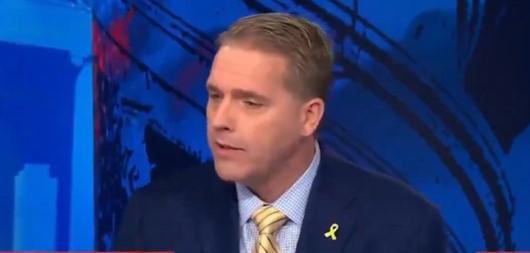On a recent episode of CNN’s State of the Union, conservative strategist Scott Jennings delivered a provocative critique of the Democratic Party, particularly targeting Vice President Kamala Harris and Minnesota Governor Tim Walz. This discussion was particularly timely given Harris’s recent difficulties as a presidential candidate and Walz’s attempts to appear relatable through his hunting-related social media antics. Jennings approached these subjects with acerbic humor, humorously noting the unfavorable media coverage and the troubling poll numbers for Harris, especially among Black voters. His remarks highlighted the broader challenges the Democratic Party faces leading into the upcoming presidential election, particularly with specific demographics that are crucial to their electoral success.
Jennings articulated a striking point regarding the Democratic Party’s perceived priorities when it comes to issues surrounding men and gender identity. He asserted that many men believe Democrats are more invested in supporting transgender rights than in addressing the needs and concerns of men who identify as traditionally masculine. This comment was particularly shocking to his fellow panelists, prompting a stunned and stammering response. Jennings’s use of vivid language and clear articulation of the ongoing male identity crisis facing the Democratic Party led to palpable tension in the discussion.
As Jennings continued to express his views, it became clear that he believed the Democratic leadership has deeply misunderstood the perspectives of working-class men across various racial groups—Black, Hispanic, and White. He firmly stated that these demographics felt alienated by the party’s messaging and that they do not see any tangible benefits from the Democratic platform. Jennings underscored the point that many men have been made to feel like the problem rather than a valued part of the electorate, which he argues could have serious ramifications on Election Day.
Additionally, Jennings contrasted Harris’s and Walz’s strategies with more traditional Democratic approaches to engage these demographics effectively. The mention of “hunting cosplay” by Walz served as a humorous yet critical observation on how some Democratic attempts at relatability can come off as disingenuous or contrived—not resonating authentically with working-class men. Jennings insinuated that such efforts are inadequate to address the core issues faced by these voters, reinforcing the notion that superficial strategies will not sway their opinions or votes when it actually counts.
The implications of Jennings’s critique go beyond just the recent missteps of Harris and Walz; they speak to a larger strategic dilemma facing the Democratic Party. His focus on the disconnect between party messaging and voter concerns suggests a critical need for the party to reassess its approaches as they grapple with falling poll numbers in key voter blocs. As Jennings passionately outlined, any efforts to patch this disconnect with light-hearted or gimmicky outreach will likely fall flat, leaving many disenfranchised voters to seek alternatives outside the party.
In conclusion, Jennings’s remarks serve as a stark reminder of the rising challenges the Democratic Party faces, particularly in bridging the gap with disillusioned male voters. As the elections draw closer, the party’s ability to address these concerns effectively will prove crucial in determining their prospects. Jennings encapsulated not only the immediate difficulties of the Harris-Walz campaign but also the larger, ongoing conversation surrounding gender, identity, and the shifting political landscape, emphasizing that the choices made now will resonate well into the future of American politics.

